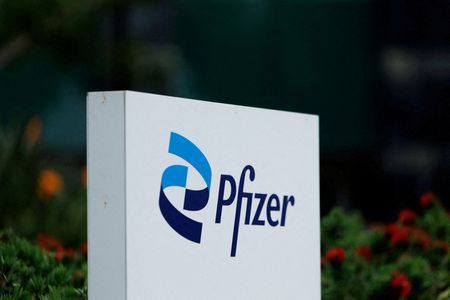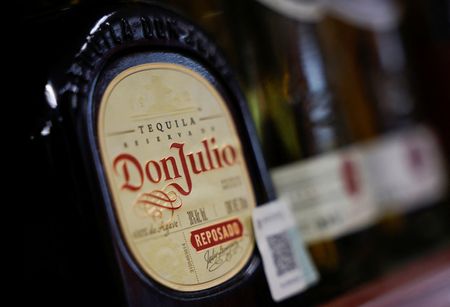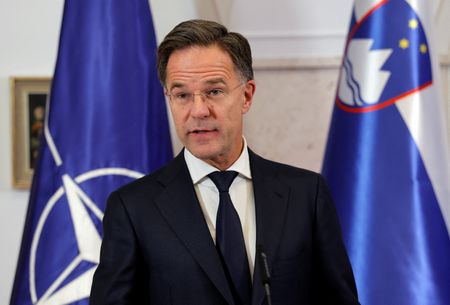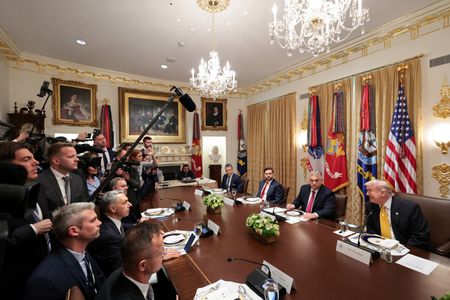By Rishabh Jaiswal and Sabrina Valle
(Reuters) -Obesity drug developer Metsera said on Friday that it accepted Pfizer’s $10 billion acquisition offer, in what could be the end of a bidding war between the New York-based pharma giant and rival Novo Nordisk that erupted over the past week.
Pfizer appeared to have locked up the acquisition in September before Novo jumped in last week with an unsolicited offer, sparking a strategic fight for a coveted asset in the growing weight-loss market. Pfizer is trying to gain a toehold in that marketplace to overcome past in-house stumbles in developing weight-loss drugs.
Pfizer will pay $86.25 a share in cash, a premium of 3.69% to Metsera’s Friday close, according to Metsera’s statement. The offer includes $65.60 a share in cash and a contingent value right entitling holders to additional payments of up to $20.65 a share in cash.
The escalating M&A game sent Metsera’s shares surging over the last week. From just before Novo stepped in with its bid through Friday’s close, Metsera shares gained nearly 60%, sending its market value to $8.75 billion.
For a time, it appeared Novo had the inside track. Novo has been trying to recover its once-commanding position in obesity drugs that it lost to Eli Lilly. It is unclear if it will make another offer, or if Metsera would entertain another bid.
Metsera, in its Friday statement, said Novo’s proposal presented “unacceptably high legal and regulatory risks” compared to the proposed merger with Pfizer, citing a call from the U.S. Federal Trade Commission to discuss the risks of a transaction with Novo. The regulator sent a letter earlier this week to Novo and Metsera, saying their proposed deal ran the risk of violating U.S. antitrust laws.
Novo did not immediately respond to a request for comment.
In a statement, Pfizer said it was pleased to have reached a revised agreement with Metsera, and expects to close the merger soon after Metsera’s November 13 shareholder meeting.
Bernstein analyst Courtney Breen said the $10 billion price rested on optimistic assumptions about the future performance of Metsera, saying Pfizer would need to assume $11 billion in revenue by 2040, nearly double Metsera’s current projections. She pointed to growing skepticism around long-term GLP-1 pricing, which could compress margins.
KEY TO THE FUTURE
Metsera’s board recommended its shareholders approve the amended Pfizer offer. The biotech company currently loses money and analysts expect additional losses while its drugs are still in development.
The bidding war between Pfizer and Novo took the price from Pfizer’s $7.3 billion offer in September to where it stands today. Former Pfizer research-and-development chief John LaMattina told Reuters the battle was reminiscent of Pfizer’s 2000 hostile takeover of Warner-Lambert for $90 billion in an effort to gain control of Lipitor, a cholesterol-lowering drug.
“While this is a smaller deal, Pfizer must believe that Metsera’s pipeline is key for its future,” he said.
Metsera’s experimental obesity drugs, MET-097i, a GLP-1 injectable, and MET-233i, which mimics the pancreatic hormone amylin, are projected to reach $5 billion in combined peak sales, according to Leerink Partners analyst David Risinger.
(Reporting by Rishabh Jaiswal, Mrinalika Roy, Christy Santhosh, Siddhi Mahatole, Sriparna Roy, and Kamal Choudhury in Bengaluru, Sabrina Valle in New York and Maggie Fick in London; Editing by Leslie Adler, Thomas Derpinghaus and David Gaffen)










